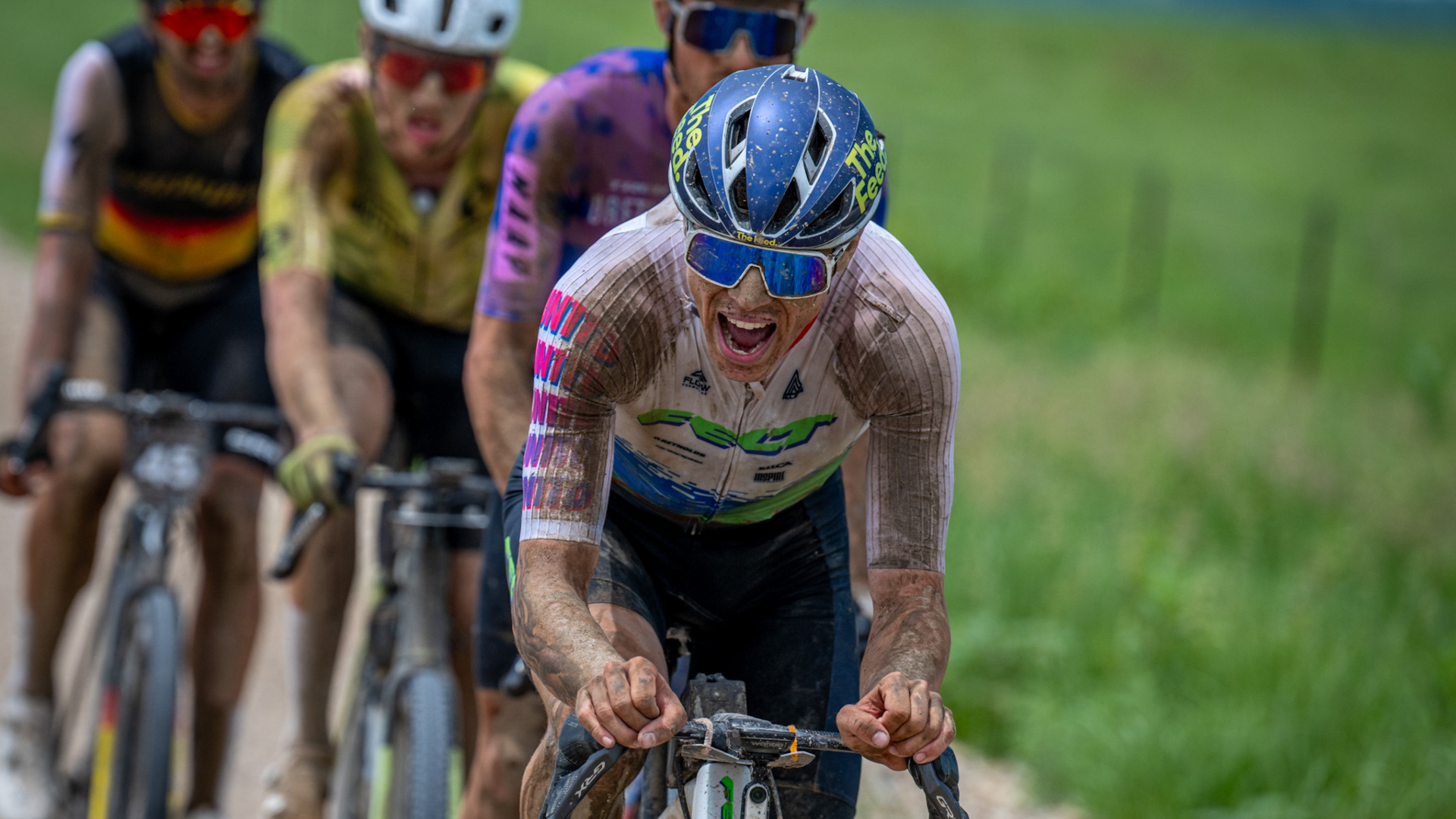
Over the years, Unbound Gravel has earned a formidable reputation, becoming known as the ultimate test of endurance, grit and equipment among cyclists worldwide.
Every factor of the race is challenging: the long, 200-mile distance, the terrain known for its tyre-slicing rocks and undulating profile, and the self-sufficiency. Without follow cars, riders have to possess some mechanical know-how to fix issues on the fly while also carrying enough water and nutrition to last up to 80 miles at a time. While the fastest pros may conquer the course in 10 hours, some amateurs will be in the saddle for well over 20 hours.
And then there's the weather. From unseasonable heat waves to powerful headwinds and the bike-destroying mud, the elements in remote Kansas can be a rider's biggest adversary.
Because of these epic conditions, the legend of Unbound grows year after year and the event sells out in record speed. Along the way, the calibre of elite riders has soared with Olympic road and mountain bike champions, Paris-Roubaix winners, and current and former WorldTour pros all taking to the start. The allure? Conquering the sheer difficulty and the bragging rights that come with it.
Despite foreboding course descriptions warning of a "relentless onslaught of rough, rocky paths" and Unbound's infamous peanut butter mud, the 2024 race edition was held in the best conditions Emporia, Kansas, had seen in years. The predicted rainfall never materialised and the weather was mild, with a morning overcast shading the riders from the heat for most of the race.
Thanks to the dry conditions, the pros made quick work of the course. Winner Lachlan Morton averaged 22.05 mph to conquer the 203 miles and 11,850 feet of elevation.
The competition was fierce, however. The 18-year-old race saw a record 5,000 participants this year, including its biggest international participation yet. Some 28 countries were represented and these riders didn't make the long trek for nothing. They were determined to make their mark. The elite fields were brimming with talent, pitting the likes of Olympic and Roubaix champion Greg van Avermaet and Tour de France stage winner Matej Mohorič (Team Bahrain Victorious) against America's best.
But no matter the length of one's palmares, gravel racing in these elements is something different entirely.
"I think we've seen in the past that a lot of WorldTour riders come expecting to demolish and they're out with mechanicals or it just doesn't play out the way that they're used," commented American gravel pro Peter Stetina, himself a former WorldTour pro, before the race.
We caught up with some European pros to get their perspectives on this infamously hard race.
Greg van Avermaet
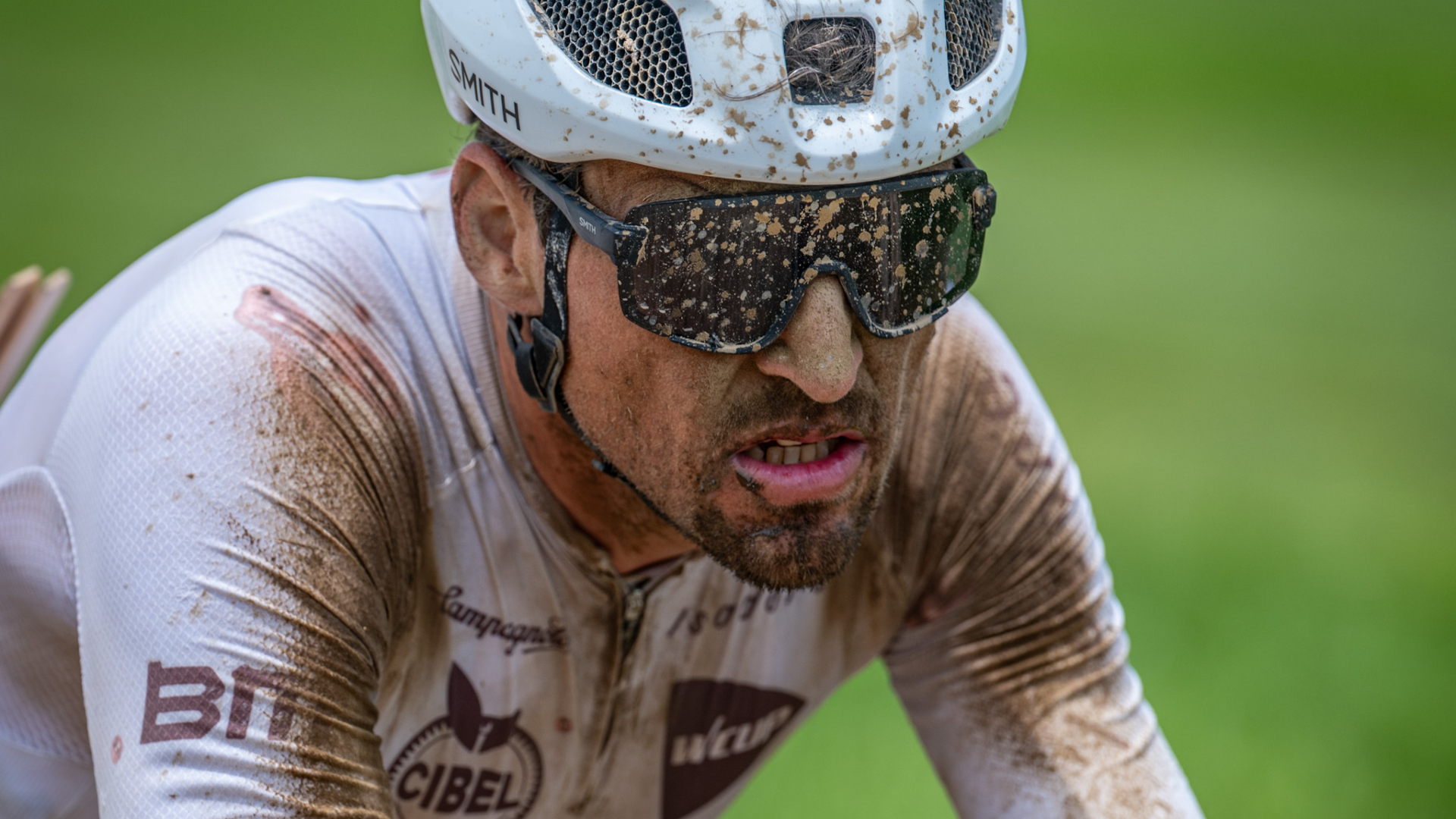
Coming across the finish line, the riders looked battle-worn and shell-shocked. Salty with sweat and crusted in dust, their eyes staring a thousand miles into nothing. They crumbled down onto the pavement and stayed down.
We found Olympic and Roubaix champion Greg van Avermaet splayed onto a patch of grass long after he'd crossed the finish line.
Van Avermaet suffered two flat tyres early in the race and consequently spent many miles with his nose in the wind, burning matching in an effort to return to the front group. He still finished in seventh place.
"Ugh where do I start," uttered Greg van Avermaet, getting into a seated position to talk.
"I'm quite tired, yes. Everybody gives his all. Doesn't matter if you get first or last, everybody has tired legs and feels the same. For sure it's a hard race. It's a long race. Nine hours on the bike is –blows a raspberry– it's really something that plays in the head. You see the kilometres not really moving, especially if you have a little bit of bad luck. It's mentally hard. It's a hard race and it's also gravel so you're not really in a peloton with a draft. You have to be careful for flats, you have to be careful for crashes - it's so mental."
When asked if he'd do it again, he laughed. "Now is not the best time to ask. I think if you ask everybody now, the answer will always be no."
Matej Mohorič
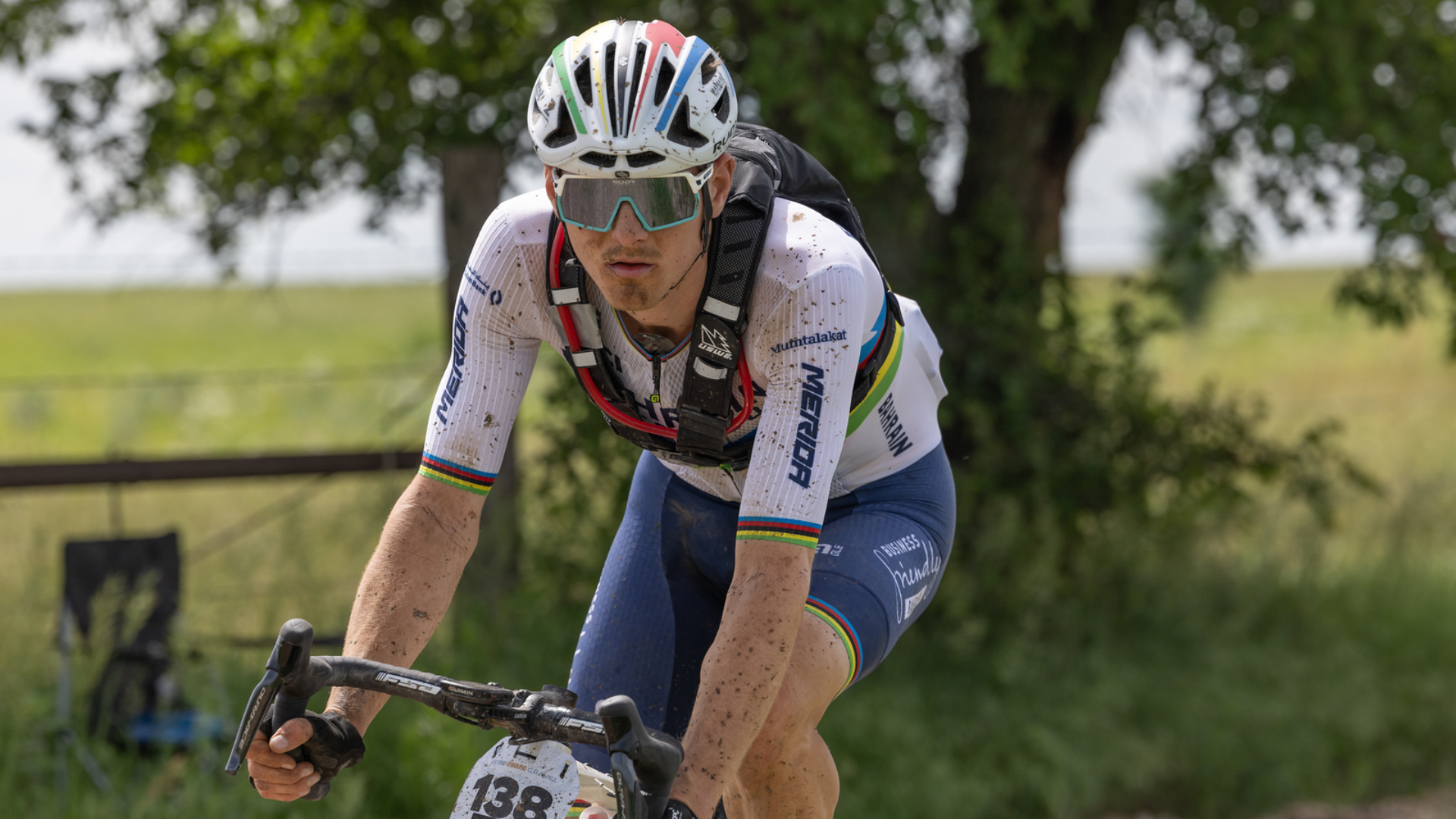
Gravel world champion Matej Mohorič who also made his Unbound debut this year fared even worse. He never even saw the front group. The Slovenian flatted twice and cracked his rim, ultimately calling it quits.
"We're going to stick to road racing guys," he announced before going to find his support crew at the second aid station for a ride back to the hotel.
Thijs Zonneveld
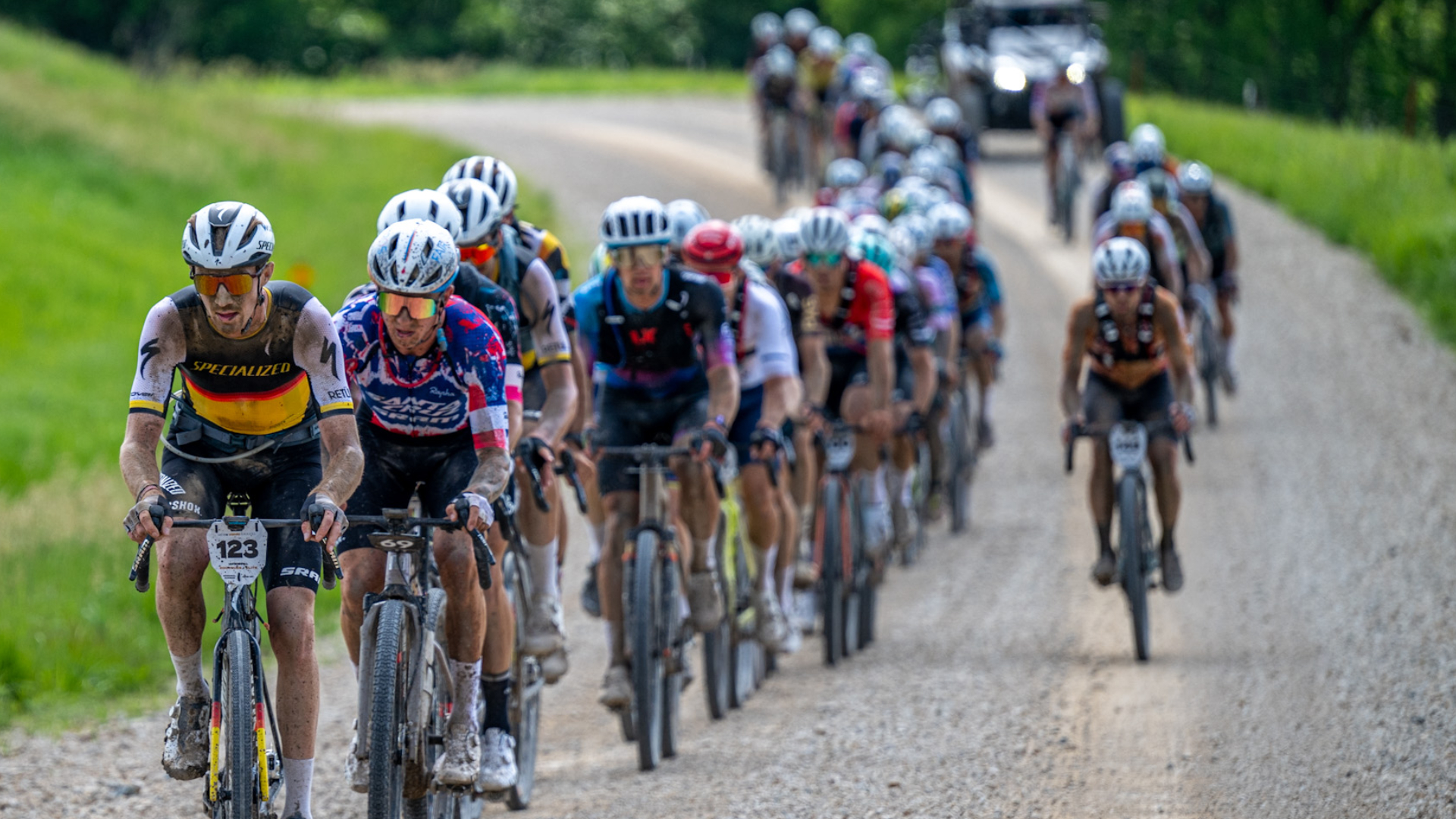
Dutch pro cyclist and journalist Thijs Zonneveld returned to Unbound this year after his first attempt was cut short. In 2023, the BEAT cyclist crashed early and landed himself in hospital with a badly injured knee. This time around, he persevered and crossed the finish line, filled with pride for completing the gruelling race and getting his teammate Piot Havik a top-5 result, but utterly battered and drained all the same.
"It's really extreme," he told Cycling Weekly. "You feel like you've already completed three normal races and then you see that you still have 100 kilometres to go.
"Especially when you're out there by yourself, then those rolling hills feel like uppercuts…The difficulty lies in everything, the combination of it all. There are other long races but they tend to be easier in that you can ride in the group and can draft. Here you are constantly paying attention, fighting for position. It's physically a very tough race but perhaps mentally even more so because you have to be focused for 9.5-10 hours. And that is so tough. Everyone doing Unbound will have a moment where they think 'I'm quitting'."
Tobias Mørch Kongstad
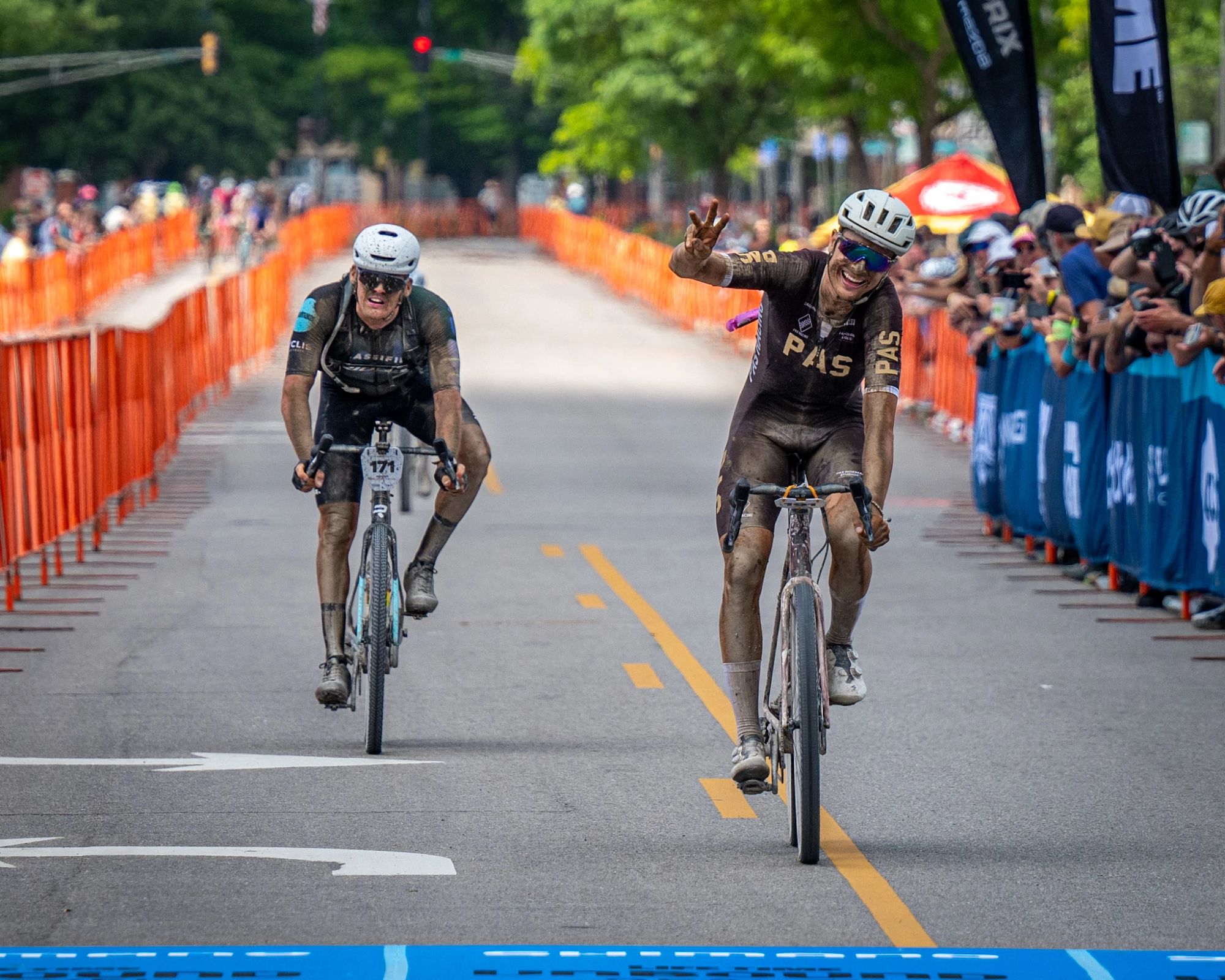
Danish rider Tobias Mørch Kongstad finished in third place after having spent all race in breakaways and solos, yet he was all smiles at the finish.
"[Unbound] is relentless because you're constantly on the pedals. Even though they were just rolling hills, it was super super hard. You never have long breaks like a downhill on proper climbs. I'm super super tired now, but to be honest I'm just a happy amateur."
Danni Shrosbree
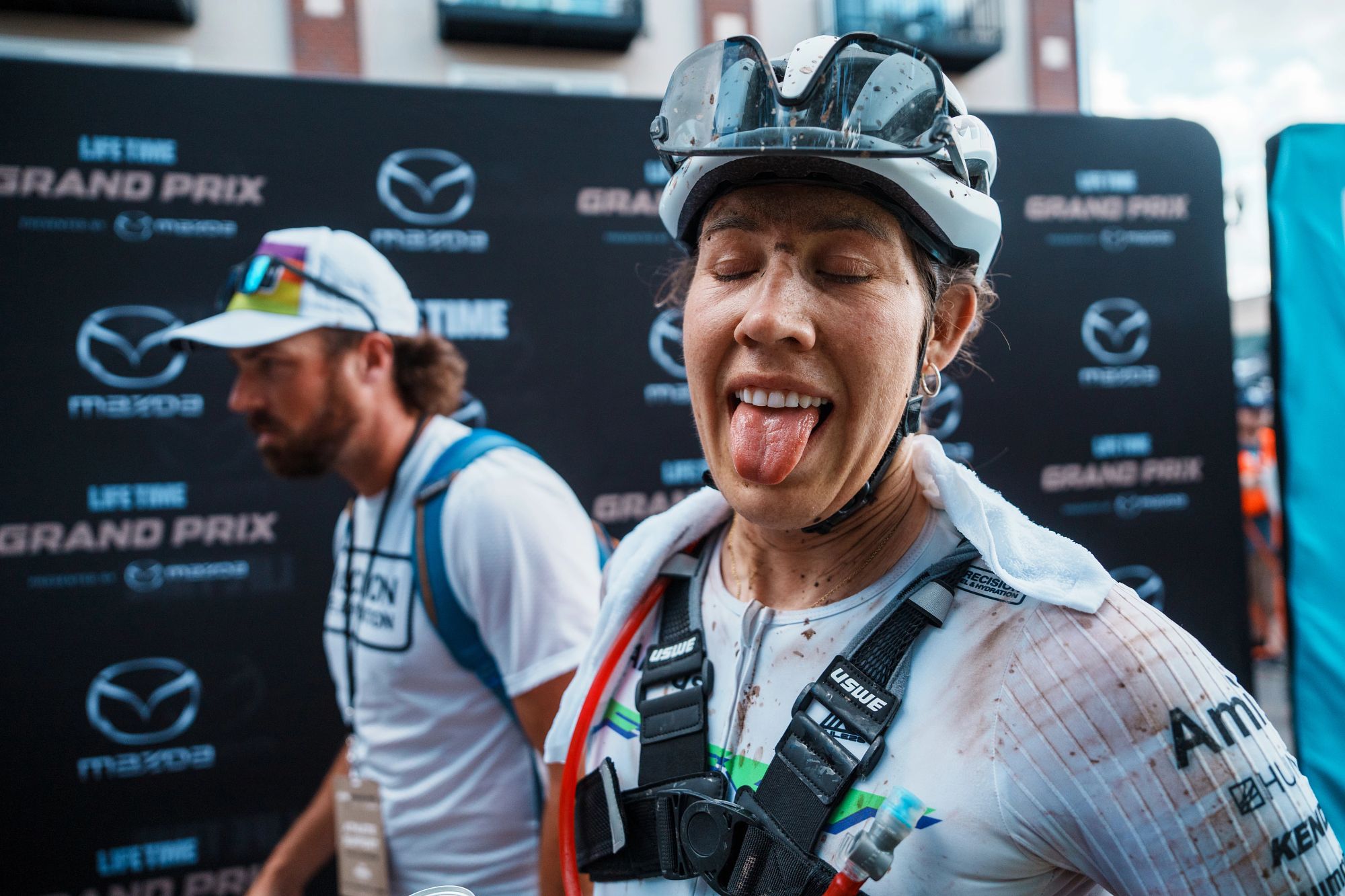
In the women's elite field, British rider Danni Shrosbree finished in fourth place in the 2023 mud-bog of a race yet came back for another go.
She explained that Unbound is as hard as everyone says it is because there's nothing else like it. Not in Europe anyway.
"Traka is probably the European version of Unbound. And Traka is quite mountain bike-y and it is chunky gravel, but it's not sharp gravel. Whereas the gravel here is relentless. It's quite zapping on the legs. So even though there's not like an 8k climb in it, there are so many mini climbs which just zap it out your legs and it becomes a real race of attrition," she said.
"A lot of people think they can do it until they come over and actually do it. It's 200 miles of pure gravel. A lot of the races in Europe, you'll end up a chunk on the road. And then there's the peanut butter mud. It's a real mental game."
Geerike Schreurs
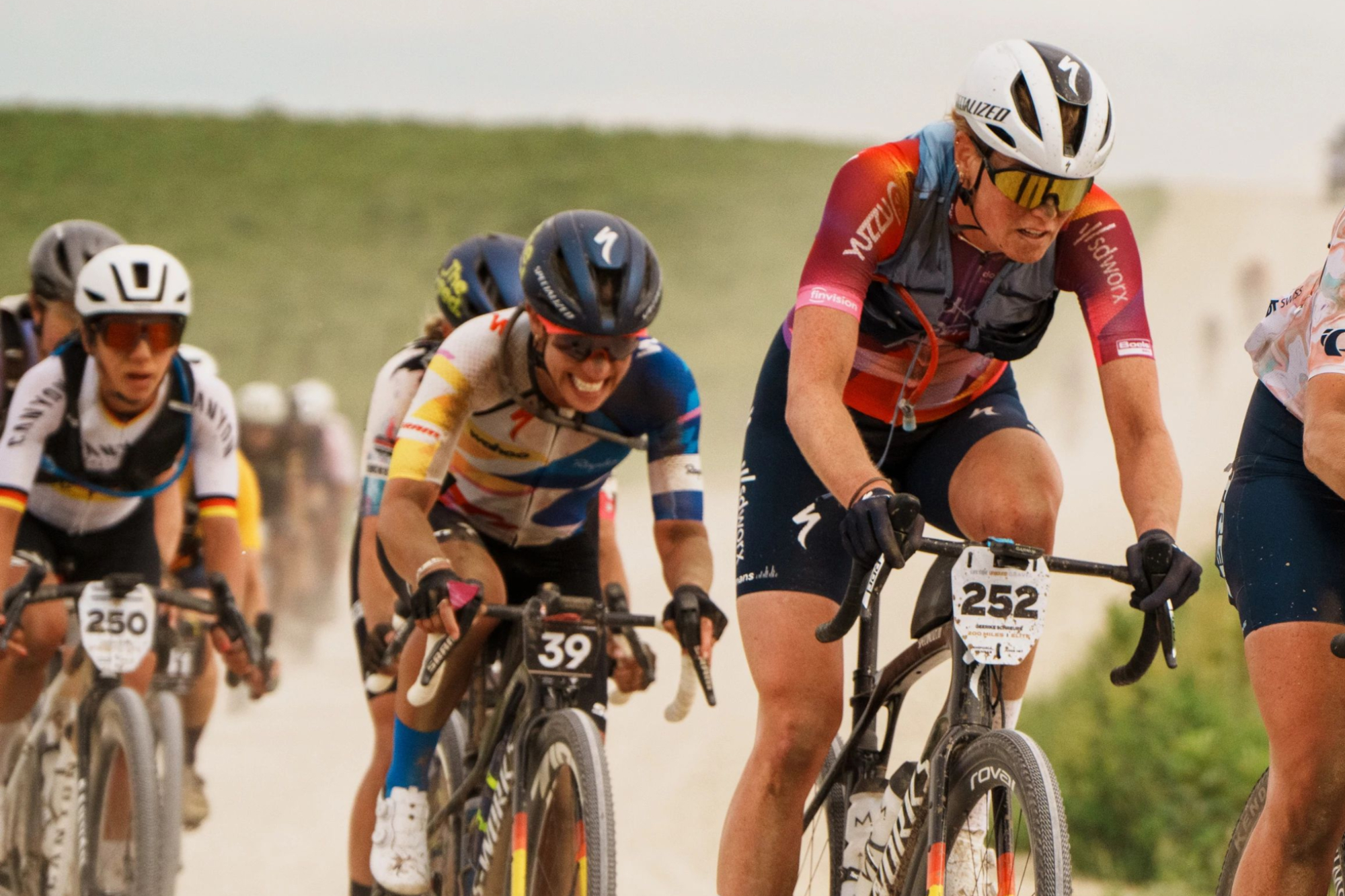
Pre-race, Dutchwoman Geerike Schreurs wagered that Traka perhaps was harder than Unbound, and that the course and the foreboding tales were perhaps blown a bit out of proportion. She'd end up finishing second in the nine-up sprint finish, and maintained that the course wasn't 'that hard' but the race was.
"It was very different than anything I've raced so far," the new gravel pro said.
"I think it's so different because the women had their own start and it is truly a very strong field that's competing here. That makes it only more interesting and fun and I think we showed a really good race. In the end, Unbound is about surviving, and I'm happy I was successful in that."







